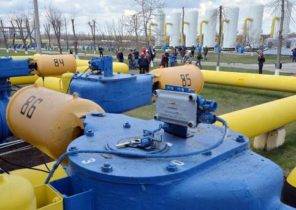The oil markets began to 2020-s with the fact that for the first time in history fell below zero (0 USD) price per barrel. Investors and analysts are trying to figure out what they can expect in the next decade.
Some believe that the crisis followed a boom — predicting that investment in the oil and gas run out, and prices will soar above $ 100 per barrel.
“The pressure from the financing will be huge. Some manufacturers will have a really hard time,” — said the chief investment officer of hedge Fund Capital of the Trace Northern Ohio Trevor wood (Trevor Woods). “By 2025, we’ll be able to reach $ 150”.
Others, on the contrary, I believe that the pandemic has cemented the era of cheap oil — even after the threat of infection by the coronavirus has lost its original sharpness.
The debate about the long-term development of the most important energy source in the world is not easy. The oil markets have dozens of variables and it is difficult to predict.
In the long term, most analysts agree that prices should tend to the level where manufacturers produce enough oil to cover demand, and thus make a profit. Covid-19 complicate this calculation. Investors are not sure whether the pandemic will change the structure of the transport and consumption forever in the direction of decline, or, on the contrary, give an impetus to progress, accelerating the transition to cleaner sources of energy.
Falling to negative values at the end of April, oil prices started to recover — helped by a recovery in the economy of China and production cuts by the Organization of countries-exporters of oil (OPEC), Russia and producers in North America. But growth has stalled amid a new outbreak of coronavirus, which threaten to undermine the demand for fuel in southern and Western States of the USA. Futures for West Texas Intermediate, the main American brand of oil markets, since the end of June traded at around $ 40 per barrel.
The reason for the growth — asset managers and banks refuse to Finance the necessary investments in existing and future oil wells, and there is an oil shortage.
Oil companies have reduced spending plans in an attempt to stabilize their estimates in response to the loss of revenue due to the pandemic. Company Exxon Mobil Corp, which last week warned of large losses in the second quarter, said it plans to reduce capital spending in 2020 by $ 10 billion (30%).
Major European companies have yet to respond to the pressure of investors who want to reduce carbon footprint. BP PLC cut its investment plans by 25% to $ 12 billion and ponders the development is not fully developed oil and gas fields.
In General, it is expected that investment in exploration and production of oil and gas assets will be reduced this year by 32% to 328,4 billion. In may the International energy Agency said that this is the largest decline over the past decade.
According to JPMorgan analyst Christian Malcolm (Christyan Malek), this belt-tightening will affect the oil production sustainable way. According to his estimates, will fall to five million barrels per day, or approximately 5% of the level before covid-19, and by 2030 production to meet demand, will need to invest additional 625 billion.
According to fry, to stimulate the production of new oil, prices will rise faster than before. This is partly due to the fact that investors suggest companies to extract higher-quality oil and to reduce methane emissions and rising production costs.
“Can the oil go over $ 100 in the next two years? More like,” says fry.
Investment Director at London-based investment Fund Matilda Capital Management Richard Fullarton (Fullarton Richard) assumes that the oil price in the second half of the 2020s years will exceed $ 100 per barrel.
“Physically, the oil does not end,” he said. “We’ll throw the capital to get access to it”.
Such predictions are at odds with the futures market, which for the remainder of the decade suggests that Brent crude oil will cost above $ 60 per barrel. The market is overestimating how fast the world moves away from fossil fuels, says woods of the Northern Trace. He agrees that prices will rise and may exceed the Brent peak of 2008 at $ 148, urging the producers of shale oil in the United States and other areas with easy prey.
The transition to a green energy such as wind and solar business leaders fully support, but outside of the European Union, this policy is being implemented very slowly, says woods: “Therefore, the use of fossil fuels will continue to grow”.
For others a return to $ 100 is fantastic.
According to Citigroup analyst Edward Morse (Edward Morse), oil at $ 50 per barrel, producers will be able to produce more than enough. His logic: technological innovations will lower production costs, and pandemic encourages people to continue to work from home and drive less and to travel, which will limit the demand for oil.
According to analyst Morgan Stanley of rat Martijn (Martijn Rats), OPEC will keep the market under control. According to him, when loomed the peak demand, Saudi Arabia and other producers of cheap oil will open the valves, but not to keep prices, and to conquer more of the market.







